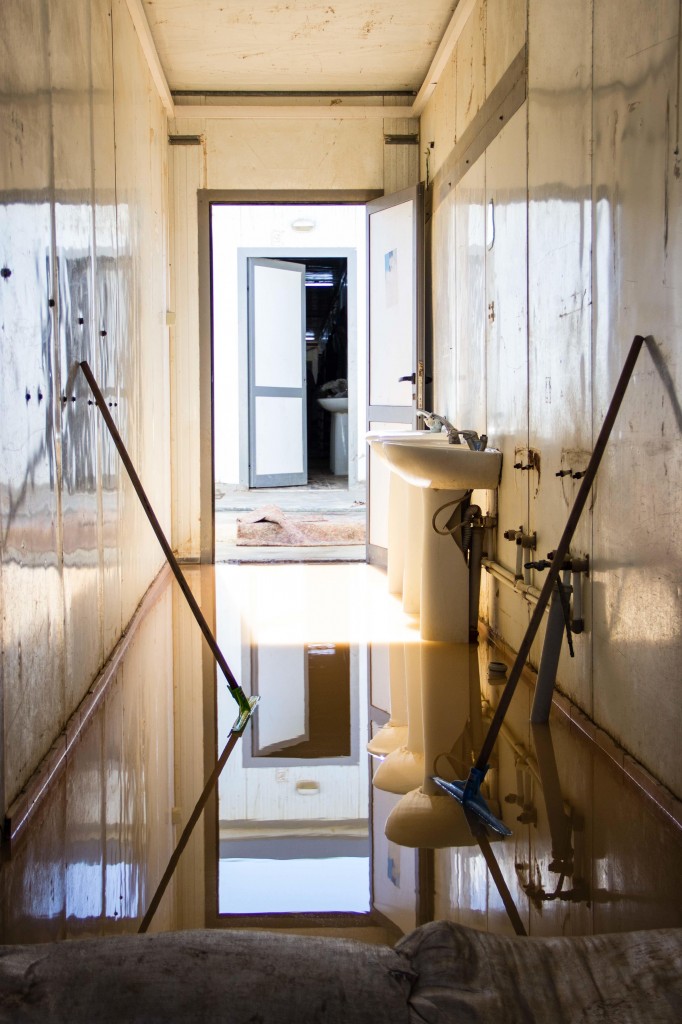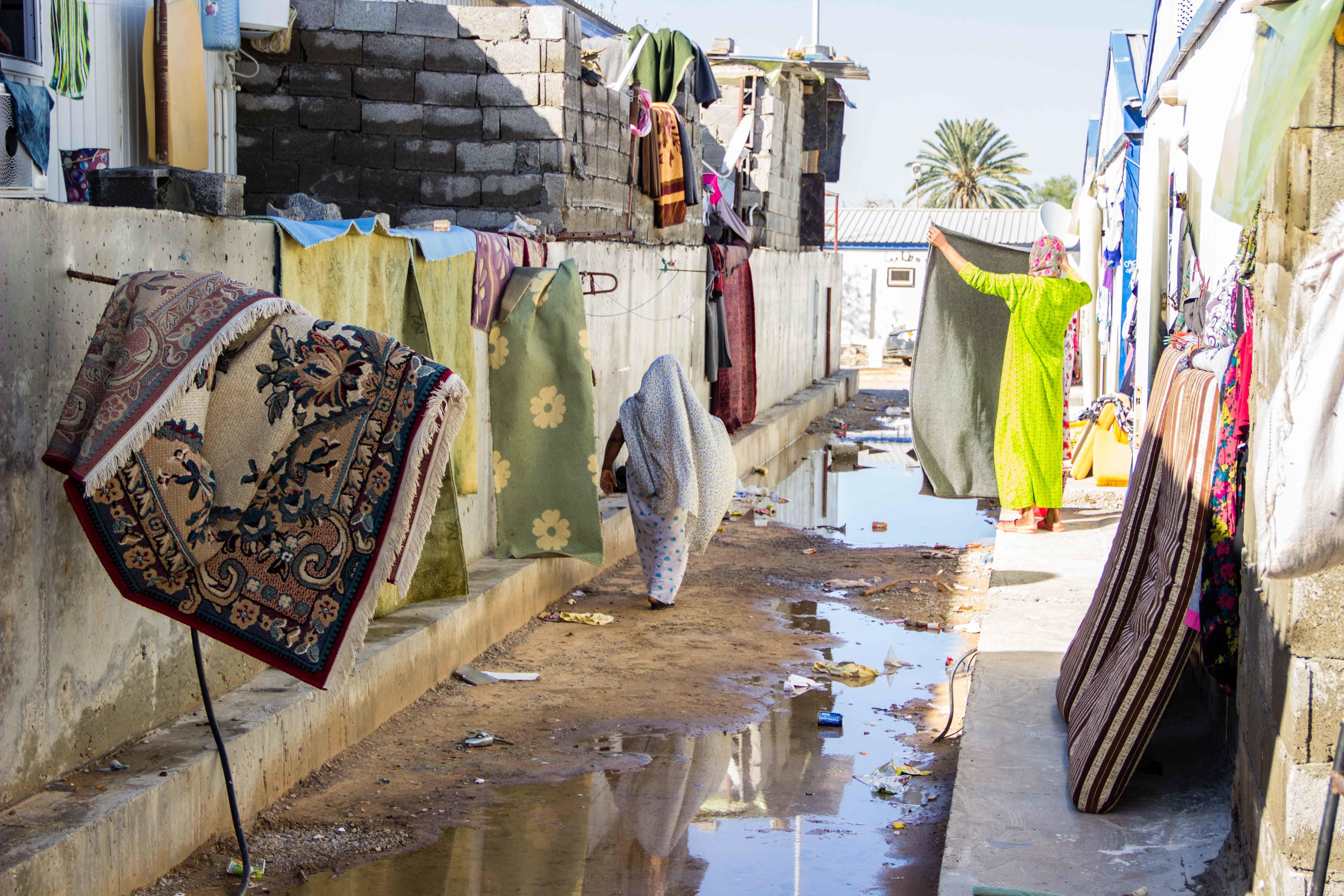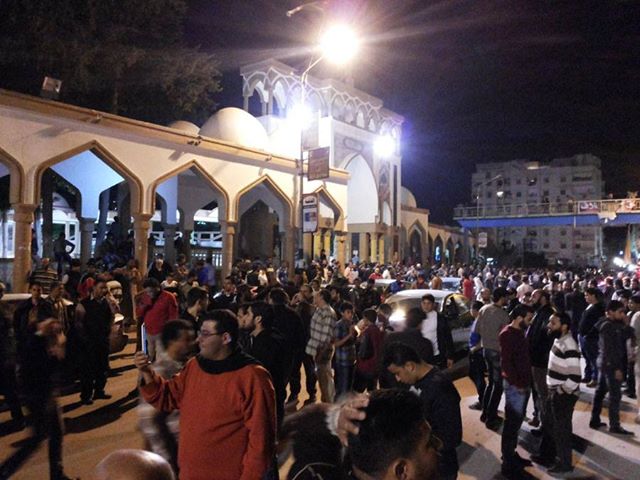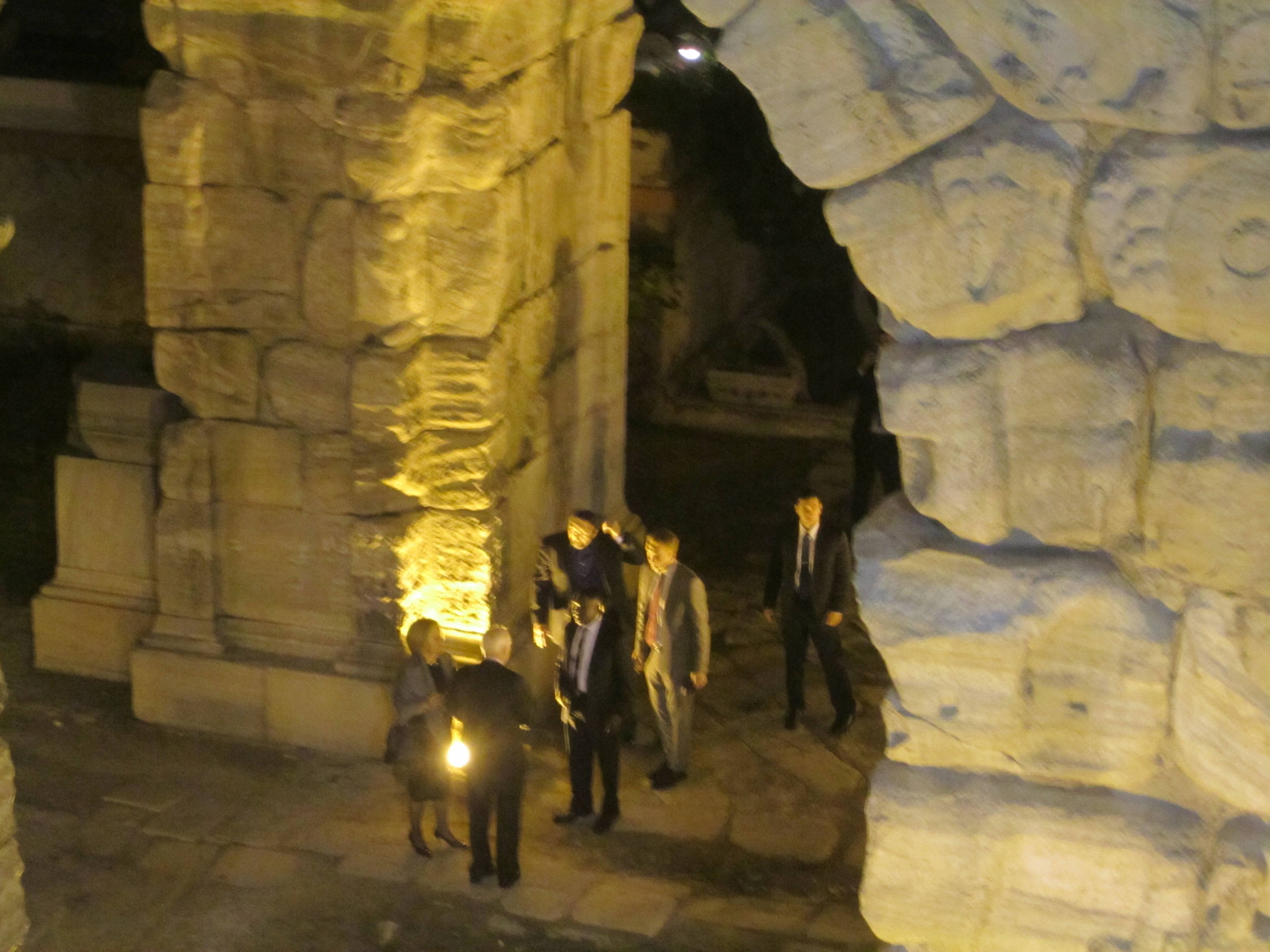By Ibrahim El Mayet.
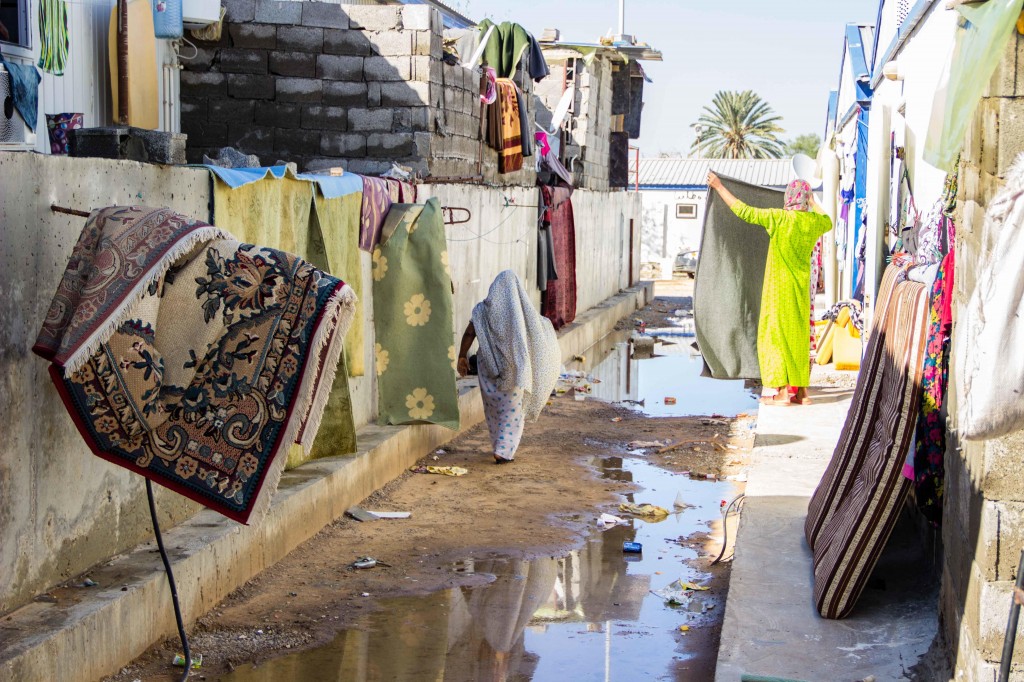
Tripoli, 2 December 2013:
For displaced Tawerghans living in five camps around Tripoli, drying out temporary and overcrowded accommodation . . .[restrict]after two days of heavy rain is still posing a challenge.
While many Tripoli residents affected by the floods were able to decamp to the houses of friends or neighbours, residents in the camps had to spend two cold winter nights in leaking and flooded prefabricated accommodation.
During the day, residents have been hanging out clothes, bedding and carpets to dry in the sun, demonstrating a remarkably stoic resilience in the face of their destitution. However, the two days of storms and the weak winter sun mean that many are still sleeping in unhealthy damp environments.
“Everyone has problems here, from young to old,” Muftah Arja of the Tawergha Council said. “Many people are suffering from severe health problems, and we have no money for treatment.” He added that many residents could not even afford food.
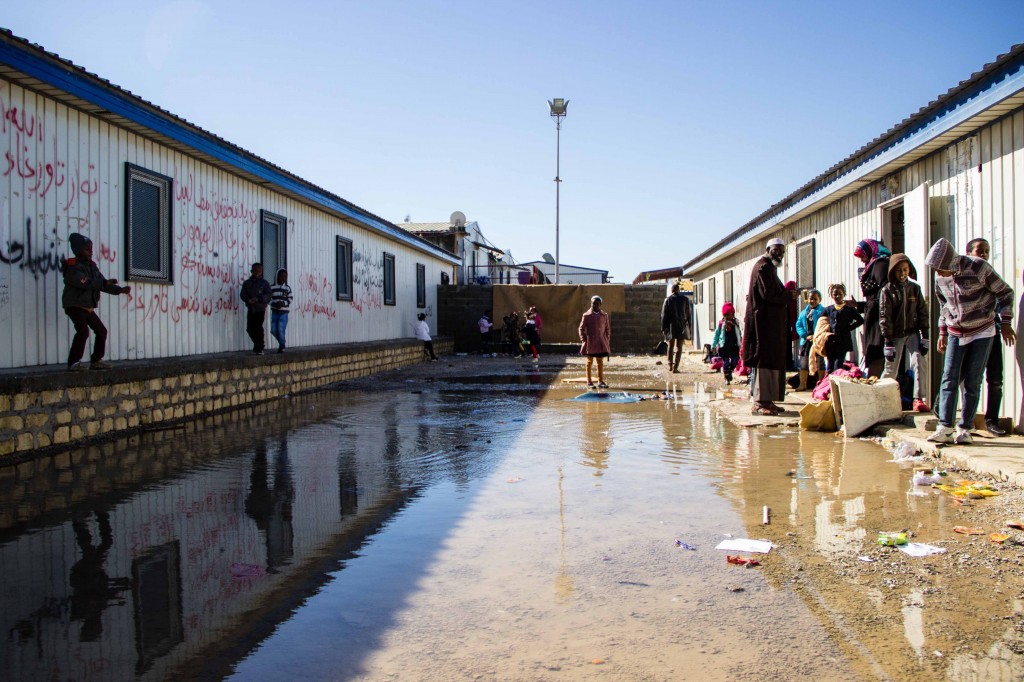
There are five camps in Tripoli housing hundreds of displaced Tawerghan families, including one on the Airport Road and another on Fellah Road. The latter houses around 250 people, as well as the Tawergha Local Council and a school for over 100 pupils in two temporary structures. More than 300 people live in the Airport Road camp.
Residents at the Fellah Road camp are crowded into pre-fabricated buildings originally intended to house construction workers on a temporary basis. Entire families of up to 15 people occupy single rooms, which serve as both a living and sleeping space. Families share communal toilet cubicles and sinks, often with no separate facilities for men and women.
“It’s tragic there to see how many people are living in such cramped conditions,” said one visitor to the camp. “They have been sleeping in the wet and dragging carpets out during the day, but the living conditions definitely pose a health risk.” He added that he had noticed that several children had nasty sores on their skin, and worried how these would be able to heal in the present conditions in the camp.
There are reports that the situation at another camp in the Tripoli Naval Academy is worse. The flood waters that swept through the camp soaked through bags of basic foodstuffs, such as rice, rendering them inedible. With residents already short of money, it might be hard for those at the camp to replace these lost foodstuffs.
The flood damage has worsened already substandard accommodation at the five camps and, now facing a third winter, all the residents are concerned about is returning home.
Muftah himself longs to return home to his villa in Tawergha. Prior to the revolution he worked as an engineer at the Libyan Iron and Steel Company in Misurata. Like many of his colleagues from Tawergha he has had no income for nearly three years.
